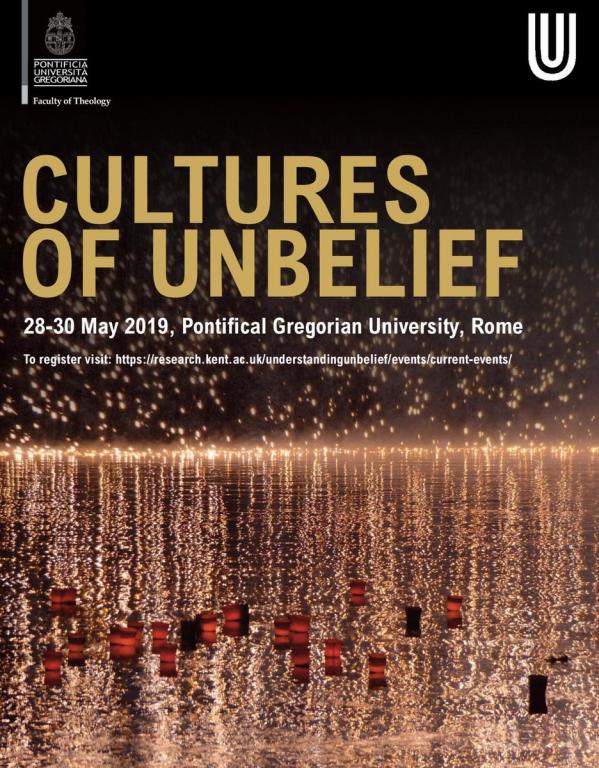Section 2 (“A Rebirth of Constitutional Government”)
The first section was pretty light on religious references, but they make up for that real quick with repetitive use of the phrase “God-given” in the first paragraph of the second section. The paragraph is bookended by references to God-given rights; “God bestows certain inalienable rights on every individual” and “the Declaration that enshrines our God-given individual rights.” Again, these aren’t terribly problematic, since they do come from the Declaration of Independence, but the section in between those two references is much more troubling to me:
…that man-made law must be consistent with God-given, natural rights; and that if God-given, natural, inalienable rights come in conflict with government, court, or human-granted rights, God-given, natural, inalienable rights always prevail; that there is a moral law recognized as “the Laws of Nature and of Nature’s God”…
I don’t know if this was intentional or not, but this seems to be an echo of something Marco Rubio said during his campaign:
We are clearly called in the Bible to adhere to our civil authorities. But that conflicts with also our requirement to adhere to God’s rules. So when those two come in conflict, God’s rules always win.
As an atheist, I find this sentiment deeply troubling. There can be no conflict between man’s rules and God’s rules, if God does not actually exist. If it is true that God is not real, then “God’s rules” are just the personal beliefs of individual fallible humans, and those individual are trying to invoke divine authority to force their personal beliefs on the rest of the country.
In fairness, I will say that the quote from the Platform is somewhat less troubling than the Rubio quote, because it specifically focused on preserving rights, rather than observing restrictions. I think you need to kinda read between the lines to see things like “if God-given rights come in conflict with human-granted rights” as a censure of bakers being forced to make weddings cakes. But implicit though it may be, I think the message is still legitimately there, and that is problematic to me. And for that matter, I strongly suspect that there will be further sections of the Platform where the message is much more forthright about imposing morality, rather than standing up for rights.
In the next paragraph, it says, “We denounce bigotry, racism, anti-Semitism, ethnic prejudice, and religious intolerance. Therefore, we oppose discrimination based on race, sex, religion, creed, disability, or national origin and support statutes to end such discrimination.”
That also doesn’t seem so bad on the face of it, but I can’t help but wonder how they feel about discrimination based on lack of religion. They don’t seem to have as much of a problem with that. In fact, if there were ever a high-profile case of someone fighting back at an employer who fired them for being an atheist, I strongly suspect that more Republican politicians would speak up in defense of the employer’s right to express their religious freedom (or their freedom to “act according to their conscience”), than would defend the right of the atheist to not be discriminated against for their lack of belief.
At the end of the paragraph, it says, “Our ranks include Americans from every faith and tradition, and we respect the right of each American to follow his or her deeply held beliefs.” I don’t see any particular problem with this, beyond what I’ve already stated about similar previous sections.
At the top of page 11, it says:
Traditional marriage and family, based on marriage between one man and one woman, is the foundation for a free society and has for millennia been entrusted with rearing children and instilling cultural values.
Of course, this is not an overt appeal to God or faith, but it appears to me that the opposition to marital rights and legal protections for homosexuals is almost entirely fueled by religious-based objections. They don’t need to explicitly invoke the name of God for this to be clearly seen as an effort to impose a specific religious morality on the rest of the population.
The subsection titled, “The First Amendment: Religious Liberty” is where this platform really starts to pour on the explicitly pro-religious stance. While I did intend for this review to be fairly comprehensive in terms of collecting all the relevant passages from the Platform, there would really be no way for me to cover all the pro-religion statements there except to simply copy-and-paste the entire subsection. To make it a bit more focused, I’ll instead just post a key sentence or two from each paragraph, and encourage everyone to read the whole subsection for themselves.
Ongoing attempts to compel individuals, businesses, and institutions of faith to transgress their beliefs are part of a misguided effort to undermine religion and drive it from the public square.
The first paragraph focuses on this perceived “effort to undermine religion,” and gives examples of what is claimed as infringements of the rights of religious people. Personally, I think people can be opposed to religious individuals having free rein to discriminate just because they’re decent human beings, without any need for such an effort to drive religion from the public square. I think it’s a bit silly to act like there’s some big plot behind this, when a simpler explanation may be that people just get upset by discrimination and bigotry.
The end of the paragraph calls for the repeal of the Johnson Amendment, which, as the FFRF aptly characterized it, would essentially turn churches into PACs. You don’t need to be anti-religion to think that it might be a bad idea for untaxed organizations to use the donations they receive to support a specific presidential candidate. It’s not anti-religious to say that any organization which files for 501(c)(3) status is doing so with the understanding that they are exchanging the ability to openly endorse a political candidate for the lack of responsibility to pay taxes.
As such, it seems less like the Republican Party here is standing up in defense of rights which are being repressed, and instead advocating for special privileges for religious people and organizations. This theme continues in the next paragraph:
We endorse the First Amendment Defense Act, Republican legislation in the House and Senate which will bar government discrimination against individuals and businesses for acting on the belief that marriage is the union of one man and one woman.
The First Amendment Defense Act, and other measures which are endorsed in this paragraph, are attempts to make it the law of the land that people can freely discriminate against homosexual individuals (or other types of people that religious groups might consider “sinful”), as long as that discrimination is being carried out because of religious beliefs. Again, this is not standing up for inalienable human rights that are coming under attack by those evil Democrat monsters; this is pushing for religious people to get special perks that others don’t have. When you say that prosecution or punishment should be handled differently based on whether the reason for an unlawful action was religious or not, all you’re doing is advocating for religious privilege.
Granted, I suspect the heavy anti-homosexual contingent of the Republican Party would probably be just as happy if everyone (religious or not) were free to openly discriminate against homosexual people, but it kinda seems like religious people are the only ones who are doing that, doesn’t it? When an employer fires an employee for being gay or a baker refuses to bake a cake for someone who’s gay, they are not “acting on the belief that marriage is the union of one man and one woman.” They’re acting on the belief that gay people do not deserve equal treatment, purely because of which gender they happen to find attractive. What this paragraph is ultimately pushing for is the official government recognition that religious people should be free to treat gay people like second-class citizens, without fear of repercussion. As an atheist, is that the kind of country you want to live in?
The third and fourth paragraphs are short and really just say more of the same. The last paragraph moves away from the issue of perceived persecution against religious people who “support traditional marriage”:
We support the public display of the Ten Commandments as a reflection of our history and our country’s Judeo-Christian heritage and further affirm the rights of religious students to engage in voluntary prayer at public school events and to have equal access to school facilities. We assert the First Amendment right of freedom of association for religious, private, service, and youth organizations to set their own membership standards.
I really don’t understand how they can argue, presumably with a straight face, that the Ten Commandments are part of our history. I suppose they could mean just the history of the Western world in general, but certainly not American history. This whole section is about religious liberty, the right for every American to practice their own religious beliefs, which is one of the most fundamental principles that our country was founded on. And yet, the very first of the Ten Commandments (“you shall have no other gods before me”) is directly contrary to that idea.
As for students engaging in prayer at schools, I think the crucial word there is “voluntary.” It’s not necessarily voluntary (in the purest sense) if a football coach says, “I’m gonna lead the team in prayer, but you don’t have to join if you don’t want to.” The only way something is truly voluntary is if there’s a lack of duress. A mugger could say, “you can give me your money or not, it’s totally up to you,” but that’s not a voluntary choice if the mugger plans to shoot you for not giving them your money. Likewise, if a student knows that they will be ostracized or outcast if they don’t join in a group prayer (and yes, this does happen), then it’s not really voluntary (at least, not until the lawsuit is filed, but then they just face further negative attention for being the heathen monster who filed a lawsuit against prayer).
That is the problem atheists and secular organizations have with this type of practice; it’s not some dark conspiracy to suppress religion or remove people’s ability to act according to their beliefs. We just want them to do it personally and individually (which is exactly what the Bible says to do anyway!), so that they aren’t creating a situation in an already tough social environment, where a minority group of people are singled out for having different beliefs than the majority.
The subsection, “The Fifth Amendment: Protecting Human Life” is mostly focused on anti-abortion policies. This is a bit more of a tricky issue to analyze from an atheist perspective. My personal opinion is that most of the opposition to abortion ultimately derives from the religious belief that human beings have souls and a “divine spark.” If you believe that those qualities are imbued on a person before birth, then you’re not going to be able to think of a fetus in the early stages of development as just a tiny cluster of cells, devoid of thoughts and feelings, hopes and dreams.
If the soul enters the body at the moment of conception, then it’s so much more than a “zygote.” I agree with that, if there is a soul, but the problem is, the soul is an entirely religious concept. It cannot be measured, or observed, or validated in any other way except by faith in a religions doctrine.
Furthermore, I believe there is some merit to the argument that at least some parts of the pro-life movement are less interested in saving the innocent lives of sweet little unborn babies, and more interested in controlling people’s sex lives. If you’re not allowed to get an abortion, and you can’t afford birth control, then the only way to avoid the possibility of getting pregnant is to just not have sex. This idea was explored in much more detail in the 2012 essay, “How I Lost Faith in the Pro-Life Movement.”
I’m not asserting that every single claim made in that piece is completely accurate, but it makes the point well enough that it’s not worth my time to retread all that same ground. If it is true that certain elements of the pro-life movement are more interested in controlling people’s sex lives than saving the lives of unborn babies, then opposition to abortion is (at least for them) another example of the Christian right trying to impose their own personal, religiously-based morality on everyone else.
These two hypotheses — that the belief in ensoulment affects how people think of fetuses, and that some elements of the pro-life movement are more interested in pushing a negative incentive for sexual activity — are the reasons why I think that the anti-abortion stance is ultimately a religious issue as well. However, I also know that there are a fair number of atheists who remain opposed to abortion, so I’ll leave out an analysis of the individual statements the Platform makes on this issue. Instead, I’ll simply say that if you see the issue as I do, read the section, and see what they have to say in opposition to abortion, Planned Parenthood, and the transfer of fetal tissue for medical research.
















